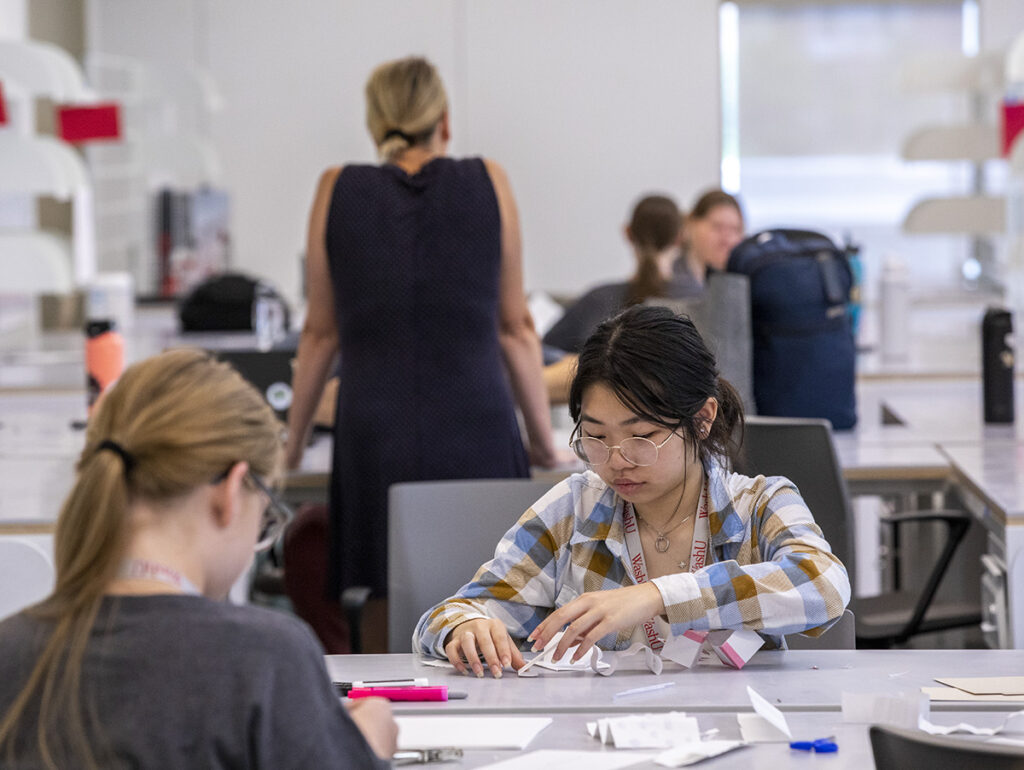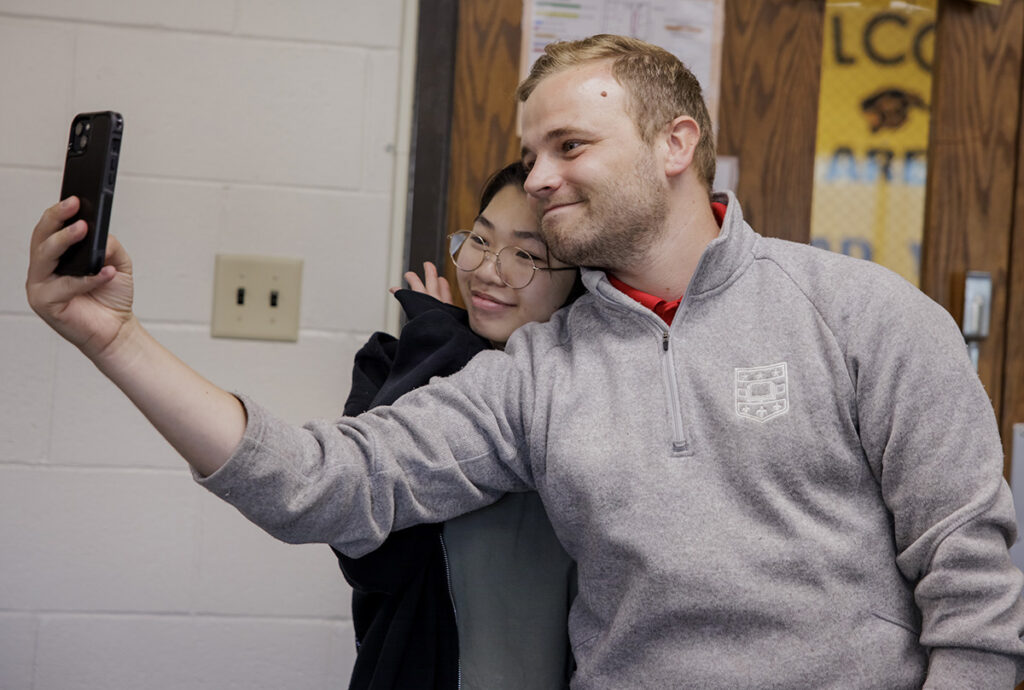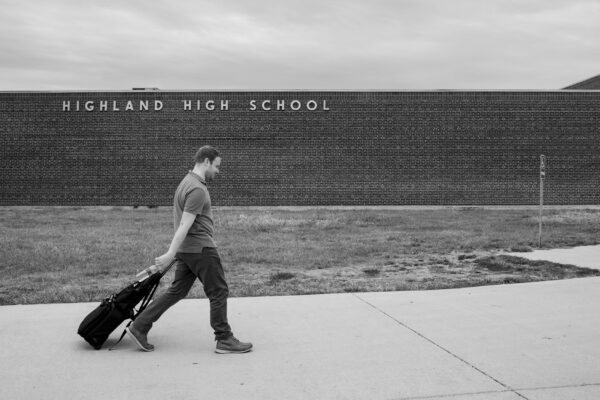(Video: Tom Malkowicz/WashU)
Two summers ago, Angela Chen joined the first class of the Washington University Rural Scholars Academy, a free program that introduces talented high school students to all that WashU and St. Louis have to offer.
Next fall, she is set to return — this time as a first-year student on a full-ride scholarship.
“I loved being on campus and getting to feel what it’s like to be a student there,” recalled Chen, a senior at Monroe City High School in northern Missouri. “Everyone was so welcoming. I knew I wanted to be part of that community. And now I will be!”
Dacoda Scarlett, inaugural associate director of rural recruitment at WashU Undergraduate Admissions, and Ariel Brown, senior assistant director of Student Financial Services, traveled to Monroe City in December to surprise Chen with the good news. As a recipient of the WashU Pledge, a scholarship for admitted limited-income students from Missouri and southern Illinois, Chen will receive a free WashU education — tuition, housing, food and fees included. Since the program launched in 2020, the university has dedicated more than $96 million to WashU Pledge scholars.

“My parents really want me to go to college. But I don’t want them to have the burden of paying for my college,” said Chen, whose parents, immigrants from China, operate a Chinese restaurant on the outskirts of town. “Getting the pledge and being able to go to school on a full ride is so amazing to me.”
Scarlett is thrilled that five Rural Scholars Academy alumni were admitted to WashU through the early admissions process for the Class of 2029. Scarlett first met Chen two years ago on his first visit to Monroe City High School and encouraged her to apply to the academy.
“She ran up to the table and was so excited to learn more,” Scarlett said. “We’ve stayed in touch every semester since then. This is why we do the work. We built this entire WashU Rural Scholars Academy program from the ground up to show these rural students that they matter.”
Rural scholars live in WashU residence halls, study with WashU professors and learn how to navigate the complicated college application and financial aid process. They also visit St. Louis attractions such as the Saint Louis Zoo and the Gateway Arch.

The Rural Scholars Academy is part of the Heartland Initiative, WashU’s commitment to expand educational access to students from rural communities and small towns. WashU also is a founding member of the Small-Town And Rural Students (STARS) College Network, providing resources to college counselors and stepping up visits to rural schools across the nation.
Monroe City High Principal Ed Talton has taken note and said he hopes that more students pursue opportunities at WashU.
“Angela deserves this; she is an exceptional student and an extremely hard worker,” Talton said after announcing Chen’s acceptance to cheering classmates in the cafeteria. “She also has shown our students that you can come from a small rural town and make an impact at a place like WashU.”
Since WashU launched the Heartland Initiative, the number of enrollees from rural communities has increased by 53% — a number Scarlett hopes to keep growing. Scarlett, who is from a small town, believes WashU has a lot to offer rural students — and vice versa.
“WashU is proud of its collaborative, community spirit, and rural students thrive in and love their small-town communities. If you want a campus community that supports each other, rural students can do that,” Scarlett said. “Rural students are also hard working. Most have part-time jobs, working on the family farm or the family restaurant. And so it’s really cool to bring these hard-working, community-oriented students to our campus to diversify the student body.”


